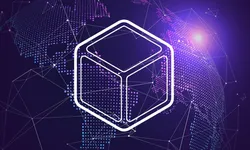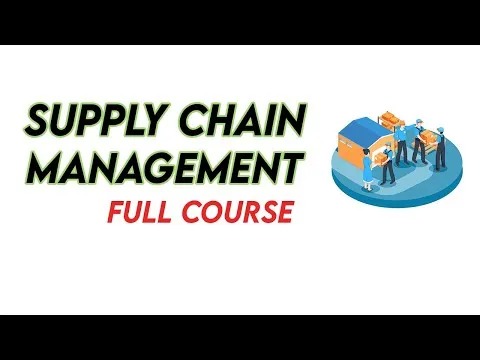
Web3 and Blockchain Transformations in Global Supply Chains 
Web3 and blockchain technology are transforming global supply chains, providing a secure, transparent, and efficient way to manage the flow of goods and services. By streamlining the process, these technologies are helping to reduce costs, improve accuracy, and increase trust between supply chain partners. ▼
ADVERTISEMENT
Course Feature
![]() Cost:
Cost:
Free
![]() Provider:
Provider:
Coursera
![]() Certificate:
Certificate:
Paid Certification
![]() Language:
Language:
English
![]() Start Date:
Start Date:
21st May, 2023
Course Overview
❗The content presented here is sourced directly from Coursera platform. For comprehensive course details, including enrollment information, simply click on the 'Go to class' link on our website.
Updated in [March 06th, 2023]
This course provides an overview of the potential of blockchain technology to transform global supply chains. Participants will learn how blockchain can improve global supply chains by streamlining processes, reducing costs and fraud, improving supply-chain visibility, authenticating assets and their origins, and ultimately fuelling product innovation. The course will also explore the impact of blockchain on the $50 trillion global supply chain industry, and how it can help to address the challenges revealed by the COVID-19 crisis. Participants will gain an understanding of the technology, its potential applications, and the implications for business and society. The course will feature videos from Dale Chrystie, Business Fellow & Blockchain Strategist at FedEx, bringing a real-world industry perspective to the course.
[Applications]
Those who have completed this course will be able to apply their knowledge to improve global supply chains by streamlining processes, reducing costs and fraud, improving supply-chain visibility, authenticating assets and their origins, and ultimately fuelling product innovation. They will also be able to use blockchain technology to create digital assets, manage and trade them peer to peer, and achieve trust through cryptography and clever code.
[Career Paths]
1. Blockchain Developer: Blockchain developers are responsible for developing and maintaining blockchain applications and networks. They must have a deep understanding of blockchain technology, cryptography, and distributed ledger technology. As the demand for blockchain technology increases, so does the need for blockchain developers.
2. Blockchain Consultant: Blockchain consultants are responsible for helping organizations understand the potential of blockchain technology and how it can be used to improve their operations. They must have a deep understanding of the technology and be able to explain it to non-technical stakeholders. As the technology matures, the demand for blockchain consultants is expected to increase.
3. Blockchain Project Manager: Blockchain project managers are responsible for managing the development and implementation of blockchain projects. They must have a deep understanding of the technology and be able to manage the project from start to finish. As the technology matures, the demand for blockchain project managers is expected to increase.
4. Blockchain Analyst: Blockchain analysts are responsible for analyzing blockchain data and providing insights to organizations. They must have a deep understanding of the technology and be able to interpret the data and provide actionable insights. As the technology matures, the demand for blockchain analysts is expected to increase.
[Education Paths]
1. Bachelor of Science in Supply Chain Management: This degree program focuses on the management of the global supply chain, from the sourcing of raw materials to the delivery of finished products. Students learn about the principles of supply chain management, logistics, and operations, as well as the latest technologies and trends in the industry. With the emergence of blockchain technology, students will gain an understanding of how it can be used to improve the efficiency and security of global supply chains.
2. Master of Science in Blockchain Technology: This degree program focuses on the development and implementation of blockchain technology in various industries. Students learn about the fundamentals of blockchain technology, its applications, and its potential to revolutionize the global supply chain. They also gain an understanding of the legal and regulatory implications of blockchain technology, as well as the ethical considerations of its use.
3. Master of Science in Business Analytics: This degree program focuses on the use of data and analytics to improve business operations. Students learn about the principles of data science, analytics, and machine learning, as well as the latest technologies and trends in the industry. With the emergence of blockchain technology, students will gain an understanding of how it can be used to improve the accuracy and efficiency of data-driven decision-making in the global supply chain.
4. Master of Science in Artificial Intelligence: This degree program focuses on the development and implementation of artificial intelligence (AI) in various industries. Students learn about the fundamentals of AI, its applications, and its potential to revolutionize the global supply chain. They also gain an understanding of the legal and regulatory implications of AI, as well as the ethical considerations of its use.
Pros & Cons

Real life examples

Well designed

Easy to understand

Informative

Well delivered.

Poor audio

High level content.
Course Provider

Provider Coursera's Stats at AZClass
Discussion and Reviews
0.0 (Based on 0 reviews)
Explore Similar Online Courses

Facebook Ads Training: How to Build Great Ads & Audiences

Free Accounting Tutorial - Introduction to Financial Accounting

Python for Informatics: Exploring Information

Social Network Analysis

Introduction to Systematic Review and Meta-Analysis

The Analytics Edge

DCO042 - Python For Informatics

Causal Diagrams: Draw Your Assumptions Before Your Conclusions

Whole genome sequencing of bacterial genomes - tools and applications

MIT Free Supply Chain Management Courses

What Are Good Supply Chain Certifications?

Supply Chain Management (Full Course) SCM Lecture
 Related Categories
Related Categories
 Popular Providers
Popular Providers
Quiz
 Submitted Sucessfully
Submitted Sucessfully
1. What is the estimated value of the global supply chain industry?
2. What is the main benefit of blockchain technology in global supply chains?
3. Who wrote and/or reviewed the scripts for the course videos?
4. What is the total value of the global supply chain industry?
Correct Answer: $50 trillion


Start your review of Web3 and Blockchain Transformations in Global Supply Chains